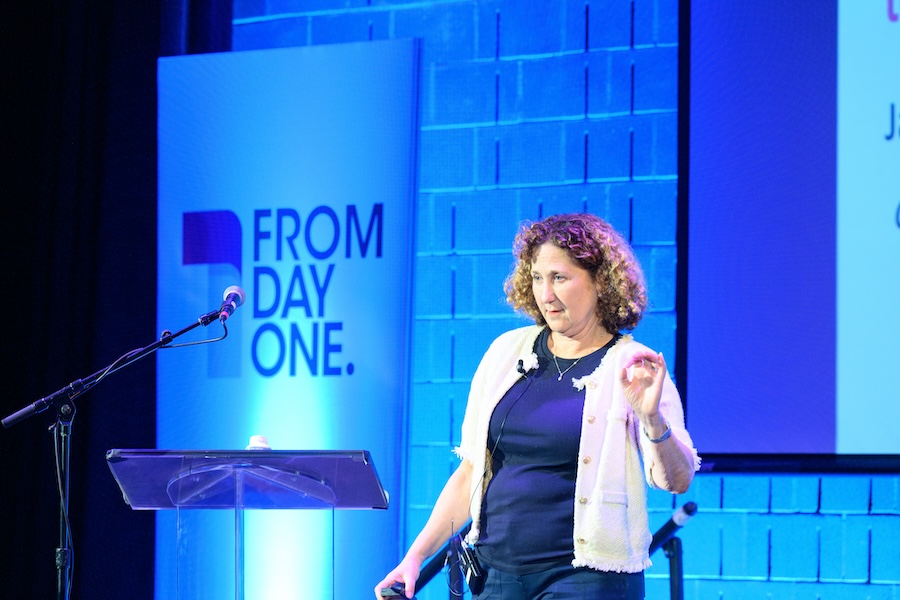Developing Workforce Culture Skills to Thrive in 2025


Emtrain’s 2024 report, “Workplace Culture in 2024 and What It Signals for 2025,” recorded that that there was a 4% increase in people’s experiences on respect, inclusion and belonging in the workplace but a 5% decrease in people’s perceptions of the personal integrity and integrity of their leaders. What does this data tell us?
During a thought leadership spotlight at From Day One’s Brooklyn conference, founder and CEO of Emtrain, Janine Yancey presented how businesses can effectively use a culture survey to gain better insights on how employees are doing and how to prepare for the future as the industry evolves.
With an uptick in major layoffs across corporations, Yancey says that the boosted numbers in experiences of respect and belonging come from those who were chosen to stay amid layoffs, but the decrease in people’s perception of integrity in leaders come from increasing doubt about leaders making impactful decisions.
“Employees right now are heavily doubting and distrustful of their leaders,” said Yancey. “We’ve got a society that’s more polarized than it really has been in decades. We’ve got so many people all working side by side.”
Corporations have become more diverse over the last five years with a multigenerational, multicultural and mulitracial staff. These changes call for a stronger need to understand the social dynamics within a workplace.
The long existing human capital metric tells businesses the basic information of total staff, demographics and promotion rates but what lacks in this measurement is the social dynamics between employees. Yancey says implementing a social capital metric can measure culture skills within a company which can show how people interact, collaborate, and work through changes.

All of these metrics show what exists today, but they can also show what can be expected in the future, says Yancey. “Our ability and our skill to mitigate biases, all of those skills at the individual level, coworker level, team level and enterprise level, they are all skills that tell you what kind of social dynamics and outcomes you’re going to have,” she said.
Yancey, as a former litigator, said all of her harassment and discrimination cases reflected “weak skills in managing power.” By measuring and evaluating how employees perceive the culture skills of their coworkers and manager under the umbrella of respect, inclusion, belonging and ethics, business leaders can predict what they can expect from their employees.
Emtrain’s culture survey measures 16 different culture skills including mitigating bias, ensuring equity, fostering curiosity, advancing allyship, authenticity, nurturing trust and accountability.
The data collected from these surveys reflect what would be learned in a one on one conversation but in an “automated, scalable way.” Results can show who’s displaying strong skills and who could benefit from more coaching and development.
“We need to think about honing in and developing the culture skills of everyone, team members, direct managers, leaders, and focusing everyone on developing and measuring those skills, because that's going to be basically the shock absorbers that's going to carry us through navigating through different and uncertain economic times,” Yancey said.
She encourages leaders to take actions towards restoring and building trust with their employees to show them that they can be confident in their leaders.
Editor’s note: From Day One thanks our partner, Emtrain, for sponsoring this thought leadership spotlight.
Jennifer Yoshikoshi is a local news and education reporter based in the San Francisco Bay Area.
The From Day One Newsletter is a monthly roundup of articles, features, and editorials on innovative ways for companies to forge stronger relationships with their employees, customers, and communities.